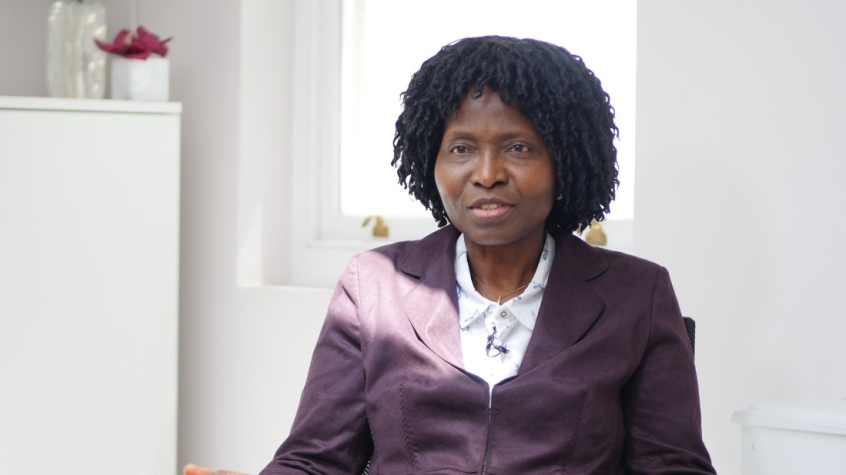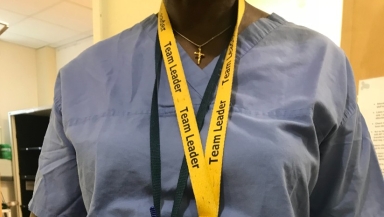
An NHS Trust harassed and discriminated against a Christian nurse who wanted to wear her cross necklace at work, an Employment Tribunal has ruled.
The Tribunal agreed that Mary Onuoha had been victimised by Croydon Health Services NHS Trust, which it said had created a "humiliating, hostile and threatening environment" for her.
In June 2020, Mrs Onuoha felt she had no choice but to resign as an NHS theatre practitioner at Croydon University Hospital, South London, after being told to remove her cross necklace while in clinical areas.
She refused and was demoted to reception duties.
The Trust argued that wearing the necklace was an infection risk but Mrs Onuoha felt she was being unfairly treated as colleagues of other faiths were permitted to wear religious articles like bracelets, turbans and hijabs.
The Tribunal ruled that the Trust applied its dress code policy "in an arbitrary way" and "in a way that was not proportionate".
It also concluded that Mrs Onuoha had been constructively dismissed "without reasonable and proper cause" and that the dismissal was unfair and discriminatory.
In their landmark ruling, employment Judge Dyal and two lay members, Mrs Foster-Norman and Ms Forecast, said: "Applying common sense, it is clear to us that the infection risk posed by a necklace of the sorts the Claimant used to wear, when worn by a responsible clinician such as the Claimant, who complied with handwashing protocol, was very low."

The Tribunal concluded that the Trust's response to the grievance raised by Mrs Onuoha prior to her resignation was "offensive and intimidating", and that the Trust had "failed to properly grapple with the complexity of the issues".
"No real thought seems to have been given to whether it was really appropriate to discipline the Claimant for doing something that in fact many others in the workforce (including more senior colleagues who worked just as closely with patients) were doing unchallenged," they said.
"Equally, no real thought was given to the Claimant's point that others were wearing religious apparel in clinical areas and that she should be treated equally to them."
Andrea Williams, chief executive of the Christian Legal Centre, which supported Mrs Onuoha in her case, she she was delighted with the verdict but suggested Department of Health guidance be updated to make it clear that cross necklaces can be worn by medical staff.
"From the beginning this case has been about the high-handed attack from the NHS bureaucracy on the right of a devoted and industrious nurse to wear a cross – the worldwide, recognised and cherished symbol of the Christian faith. It is very uplifting to see the Tribunal acknowledge this truth," she said.
"It was astonishing that an experienced nurse, during a pandemic, was forced to choose between her faith and the profession she loves.
"Any employer will now have to think very carefully before restricting wearing of crosses in the workplace. You can only do that on specific and cogent health and safety grounds. It is not enough to apply general labels such as 'infection risk' or 'health and safety'.
"The judgment makes it clear that Mary's ordeal resulted in large part from the NHS managers' misunderstanding of the Department of Health guidance on uniforms for its staff.
"The result has been a campaign of harassment against a devoted, experienced, and highly professional nurse, who was in effect hounded out of the NHS. I hope Sajid Javid pays attention."













